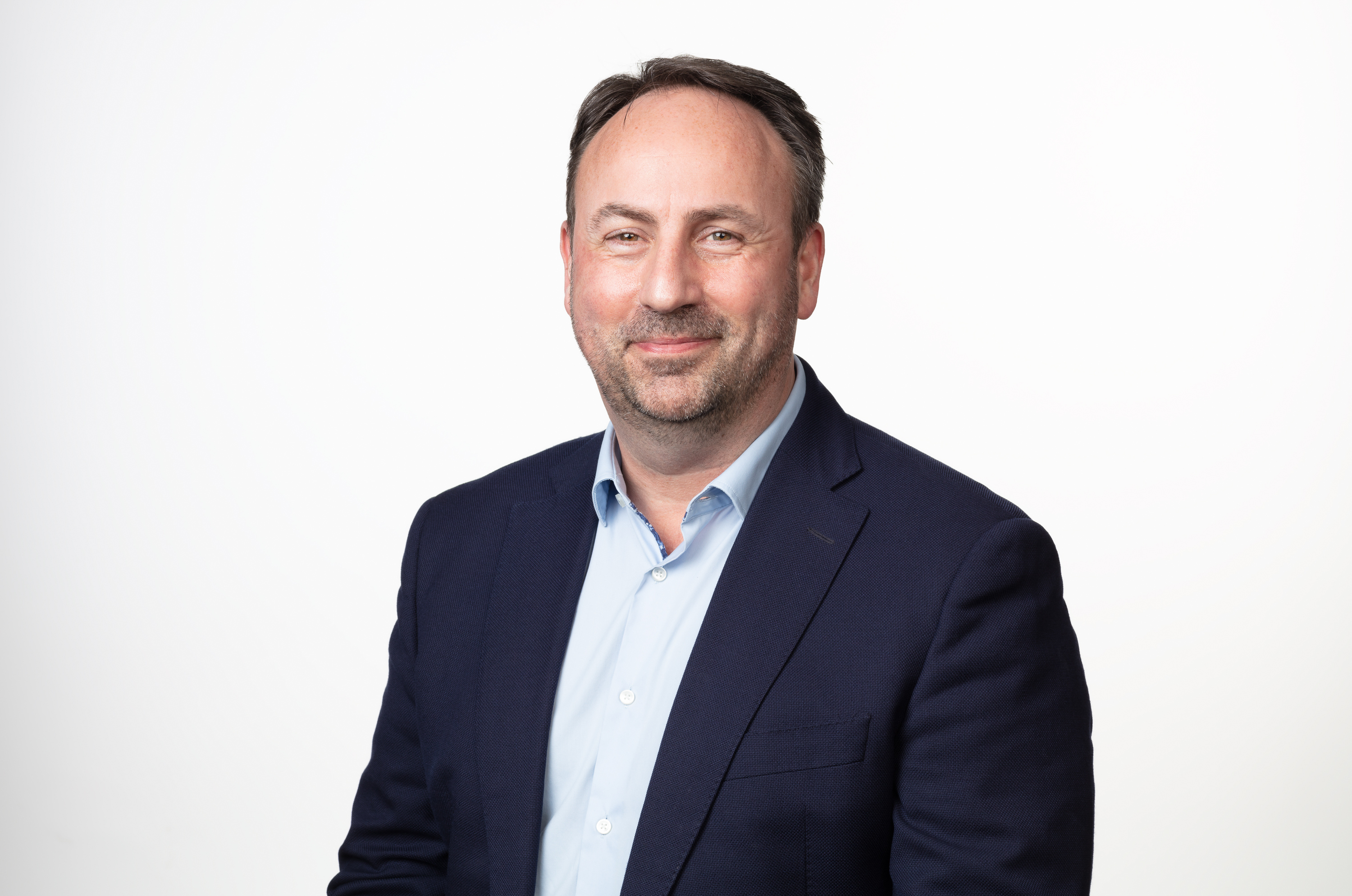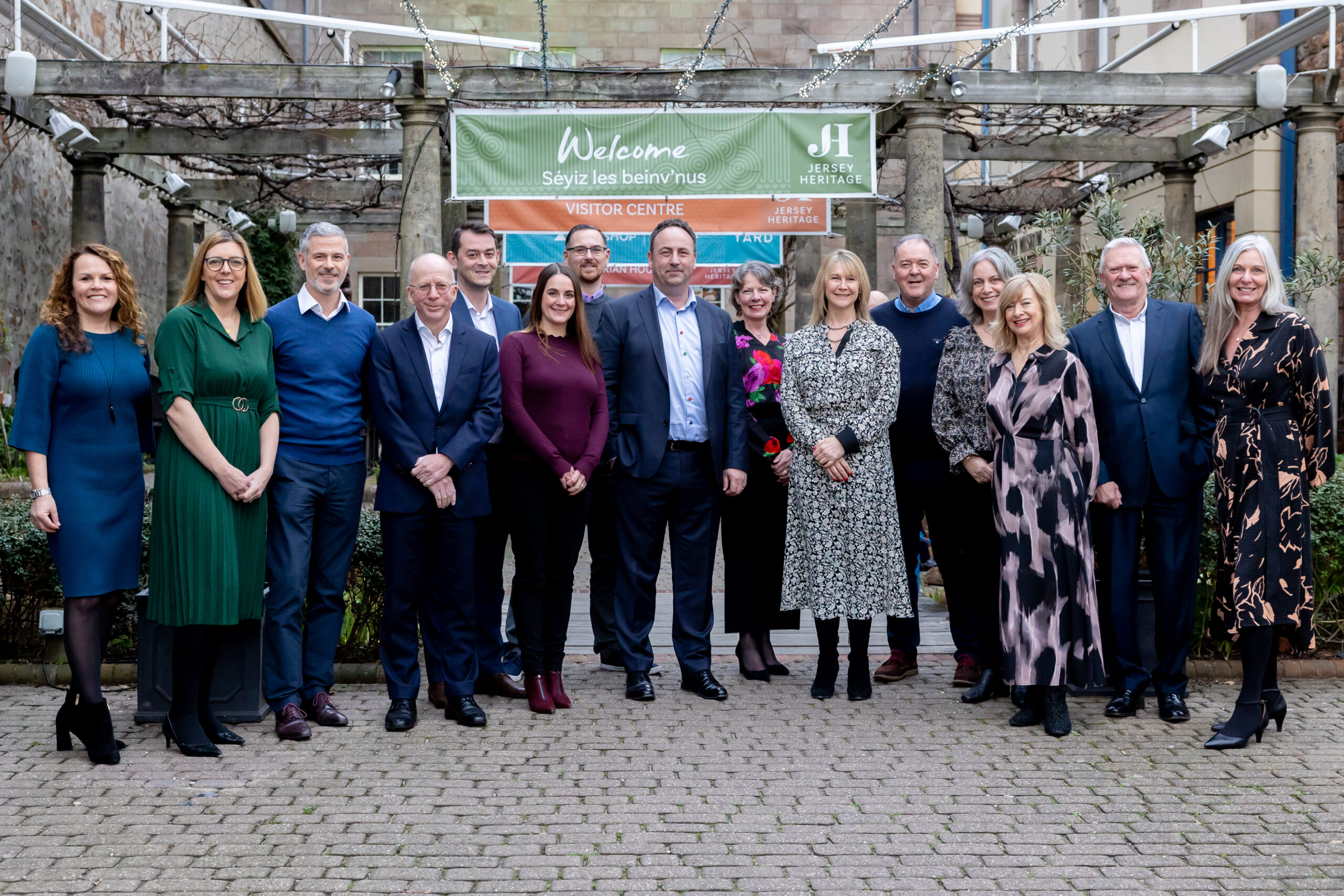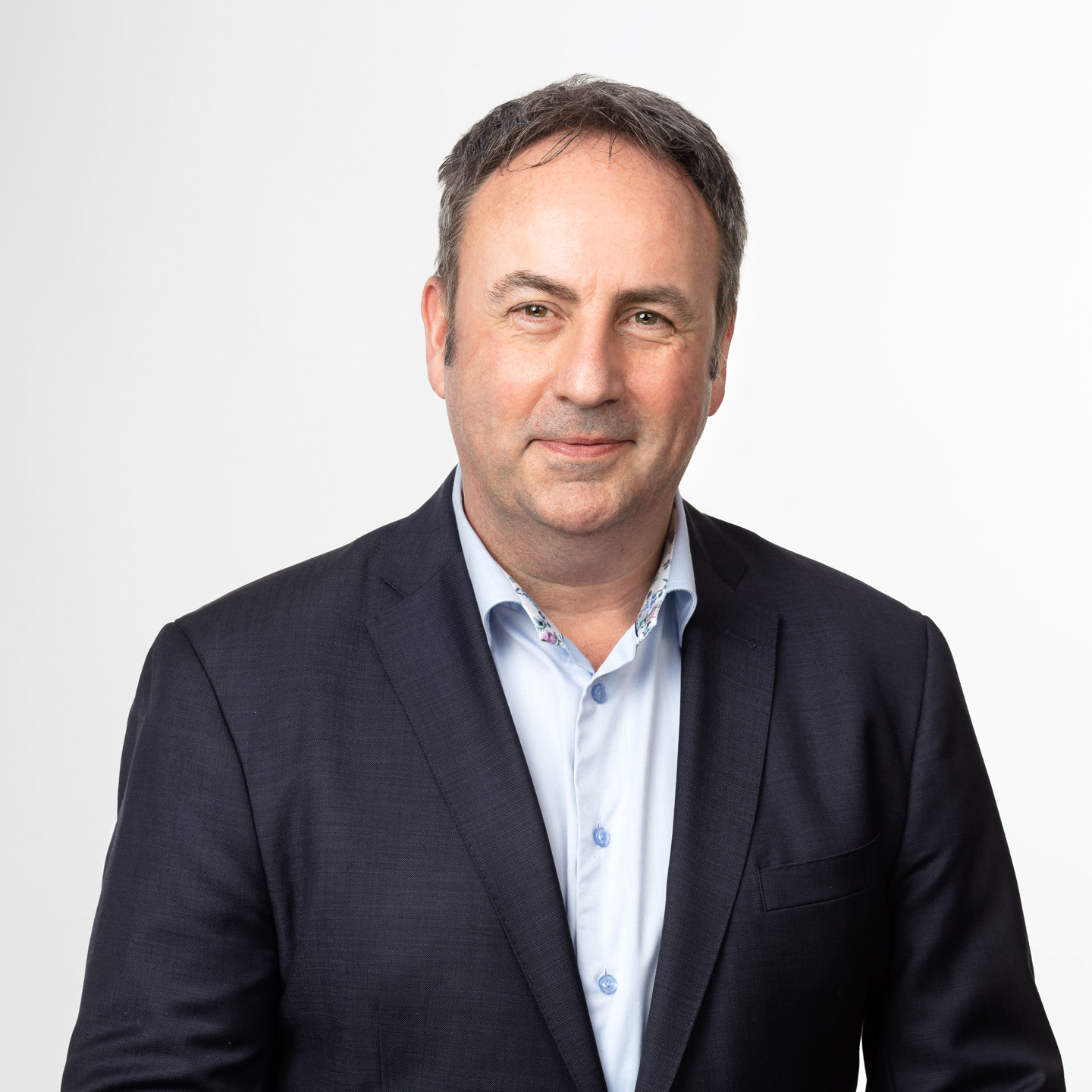‘Delivering change comes down not to what you do but how you do it’ - Paul Murphy, CEO Jersey Business
 Our CEO, Paul Murphy was interviewed by Emily Moore of the JEP on his new role at the helm of Jersey Business
Our CEO, Paul Murphy was interviewed by Emily Moore of the JEP on his new role at the helm of Jersey Business
The new chief executive of Jersey Business, Paul Murphy, understands from his own experiences how important it is for businesses to embrace change to bring about resilience.
It is widely acknowledged that, in the world of business, there is no such thing as standing still: you either move forward or you regress.
Inherent to this philosophy is change – a constant factor which, according to the new chief executive of Jersey Business, underpins every stage of a firm’s development.
‘In conversations about Jersey Business and the economy in general, we often speak about people, productivity, innovation and resilience but underpinning all of those things is change management,’ said Paul Murphy, who officially took up his new role on Monday.
‘Businesses are on a constant curve change and I think of our organisation as agents supporting change and accelerating business success in Jersey by focusing on the six key pillars of people, productivity, environmental impact, innovation, resilience at both company and Island level and information sharing.’ While these words may sound like something from a business studies text book, for Mr Murphy, they are much more than this.
Having spent 34 years in a variety of sectors including manufacturing, distribution, retail and technology, his most recent experience was with St Peter-based global e-commerce business Onogo, a company which, as he explains, has truly embodied that journey along the change curve.
‘I joined the company initially as a non-executive before becoming chief executive four years ago,’ he explained. ‘At that point, the business was in its tenth year and had already built a global customer base so my role was to see how its journey could progress.’ The shape of that journey, though, was one which even Mr Murphy could not have predicted.
‘In the first couple of years after I joined, Onogo more than doubled in size, going from just under 30 people to 70,’ he reflected. ‘As we grew, we focused more on leadership, working with Jersey Business and Skills Jersey which, in turn, helped the firm’s productivity. That enabled us to engage with things such as robot process automation, software designed to automate high-volume mundane tasks, freeing up people to do something more valuable.
‘Along the way, we achieved our Jersey Good Business Charter and, as part of that process, were judged by a number of external bodies, which I think was a really healthy way to assess our leadership, teams and business operations.’
While achieving many successes, the business was then rocked by a legislative change, stemming from Brexit, which ‘fundamentally changed the way we could address the European market’.
‘As a result of this change, which was beyond the team’s control, we had to look at rightsizing the business again, which meant saying goodbye to some colleagues and changing the shape of the enterprise,’ he explained. ‘While challenging, the other side of that story is that, as an organisation, we coped with rapid change and quickly pivoted to a different business model, which enabled Onogo to weather some of that economic downturn and position itself strongly for the future.’
And this understanding of rapidly changing business environments and their impact on productivity, combined with his insights into the challenges common to many businesses which he gained during his time as chair of the Jersey Chamber of Commerce Retail and Supply Chain Committee, is one of the reasons that Mr Murphy believes he is in a good position to continue ‘the excellent work of [retiring Jersey Business chief executive] Graeme Smith and his team’.
‘Do I understand pivot? Yes. Do I understand the need for resilience? Yes. And, having lived that, the one thing I reflect on is that, more often than not, being able to deliver change comes down not to what you do but how you do it,’ he said.
‘During my work with the Chamber of Commerce, I discovered the diversity of businesses, diversity of thought and the number of businesses which needed support or were facing challenges,’ he explained. ‘Through that, I discovered the extent of the programmes offered by Jersey Business and, as a fan of developing both myself and my team, I attended many of the practitioner workshops on the Leading Growth programme. I also went to many of the productivity workshops, which are really good at allowing organisations to focus on processes embedded within their businesses and to develop processes to drive improvement, two things which are dear to my heart and which are key to Jersey Business.’
And this is where Mr Murphy is keen to stress the body’s role supporting not just start-ups but long-established companies as well.
 Paul Murphy with the Jersey Business Team
Paul Murphy with the Jersey Business Team
‘I think there is a perception that Jersey Business is about entrepreneurialism and that entrepreneurialism means new,’ he said. ‘Now there is definitely an element of that, and of being an incubator and supporting new start-ups but Jersey Business helps the majority of businesses at all stages of their lives.
‘If you think about a business lifecycle, you have introduction, set-up, growth, maturity and then you might have an exit or decline stage, and the team at Jersey Business supports each of those steps, with the leadership programmes, in particular, touching a number of firms during their growth or maturity phase.’
While acknowledging that every business is unique, Mr Murphy said that many of the challenges they were facing were not.
‘If you look at productivity, for example, many businesses have that problem even if they don’t necessarily realise it,’ he explained.
‘Jersey has a working population of around 60,000 people and there is a labour-market gap of between 1,200 and 1,500 people, while a recent Jersey Business survey identified a productivity gap of around 25% jobs. Is productivity, therefore, a paracetamol for a labour-market problem? It may not solve every issue but it could be a substantial part of the solution.
‘I think it is vital that businesses look at their workforce and identify whether people are productive in the right ways. Sometimes there is a fear that technology could take people’s jobs but that isn’t true. Technology just allows humans to add value where value is needed and to move up the value chain. You have to remember that all software requires a human to operate it, and that comes back to the question of skills and making sure that people have the right skills. These will change as jobs evolve but, as we have already said, change is a constant and delivery of improvement in yourself and in your teams has to be constant. If you keep pace with that, you will probably do well. If change isn’t abundant within your organisation, you are probably going backwards.’
Another area on which Mr Murphy is keen to focus is communication, and the way in which messages can be simplified.
‘During my time at Chamber, I realised that, while we were operating in a very complex environment, we needed a simple approach which set out what the economy looked like and what the challenges were,’ he said. ‘In many cases, the challenges – input costs, the labour market, the cost of living – are universal. Indeed, cost of living – a bit like Covid – is an issue facing all businesses, locally and globally. And, just as we did with Covid, we need to talk about this, understand the pressures and address them.
‘For me, one of the key factors when I think about the economic challenges is resilience, and this is something on which Jersey Business does a lot of work. But what is resilience? It’s a big word and there are many layers to it. More often than not, it starts with people and, if you build an individual’s resilience, you can help the business to be more resilient.’
And, once again, Mr Murphy says that productivity is key to this.
‘As you look at economic resilience, balance sheets and cashflow, you then start to think about what else builds resilience and that comes down to things like investments, equipment and processes, which brings us back to productivity,’ he said. ‘Therefore, while there are undoubtedly a lot of challenges within the economic environment, there are also a lot of answers and I think that sometimes it’s important to slow down and take the time to identify those answers.’
Helping to shape many of those answers, says Mr Murphy, is information and feedback.
‘Having worked as both a practitioner and supporter of business over my 34-year career, I have gained a good oversight and insight into many areas and I also have a strong empathy, which I think is important for this role,’ he said. ‘While I am quite theoretical, my experiences mean that I can relate to the practical elements of many of the stories people bring to Jersey Business.
‘But while I like to think that I usually come up with a reasonably informed view, it is also important to make sure not only that my view is up to date but also that I represent the opinions of others, something which Jersey Business has always done incredibly well.
‘To do this, data and insight are essential. Coming from a background which is very rich in data, I am passionate about gaining as many insights as possible to make sure that our knowledge base is as informed as it can possible be. This information is essential not just for sharing with businesses but also with government. As a Government of Jersey arms-length organisation we give advice both to industry and the Economic Development Department so we are very much a co-ordinator, support and facilitator.’
Saying that he is keen to increase collaboration between the organisation, businesses and government, Mr Murphy said he also wanted to work with the 15-strong team to ‘articulate exactly who we are, how we work and show where we deliver those many elements of value to business and the economy’.
‘If I was coming to the end of my tenure here, I would say it had been successful if I could see that engagement had done up and that we had delivered more value,’ he said. ‘Jersey Business offers an awful lot of services and we are lucky to have access to such amazing networks but, with so many options in so many places, I’m not sure whether people always know what support is available.
‘If anything, I would like to simplify that and bring these services together more so that people have a clearer idea of what we can do and how we can help. Ultimately, we know that change is constant and so we need to think economically, strategically and individually about the support that is out there and continue to play a strong role in helping businesses to find the answers to the challenges they are facing so that they can continue to grow and support our economy.’
‘ Technology just allows humans to add value where value is needed and to move up the value chain. You have to remember that all software requires a human to operate it, and that comes back to the question of skills and making sure that people have the right skills.
This interview originally appeared in the JEP on 15th Februay 2023.

